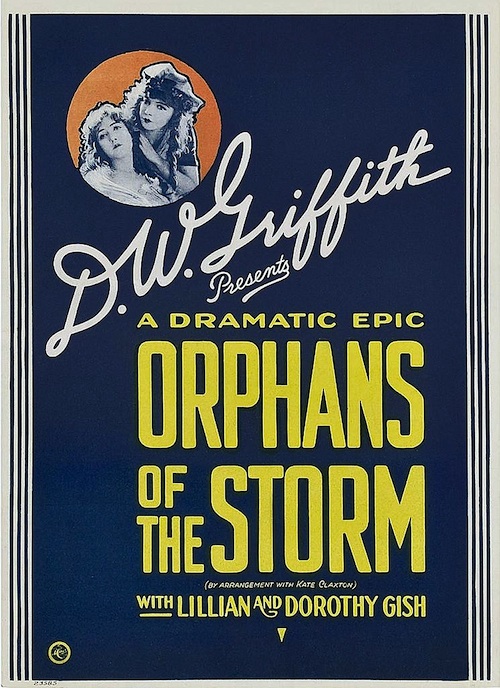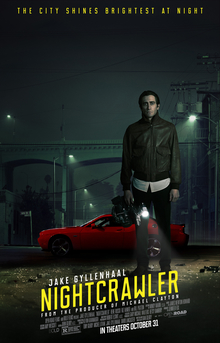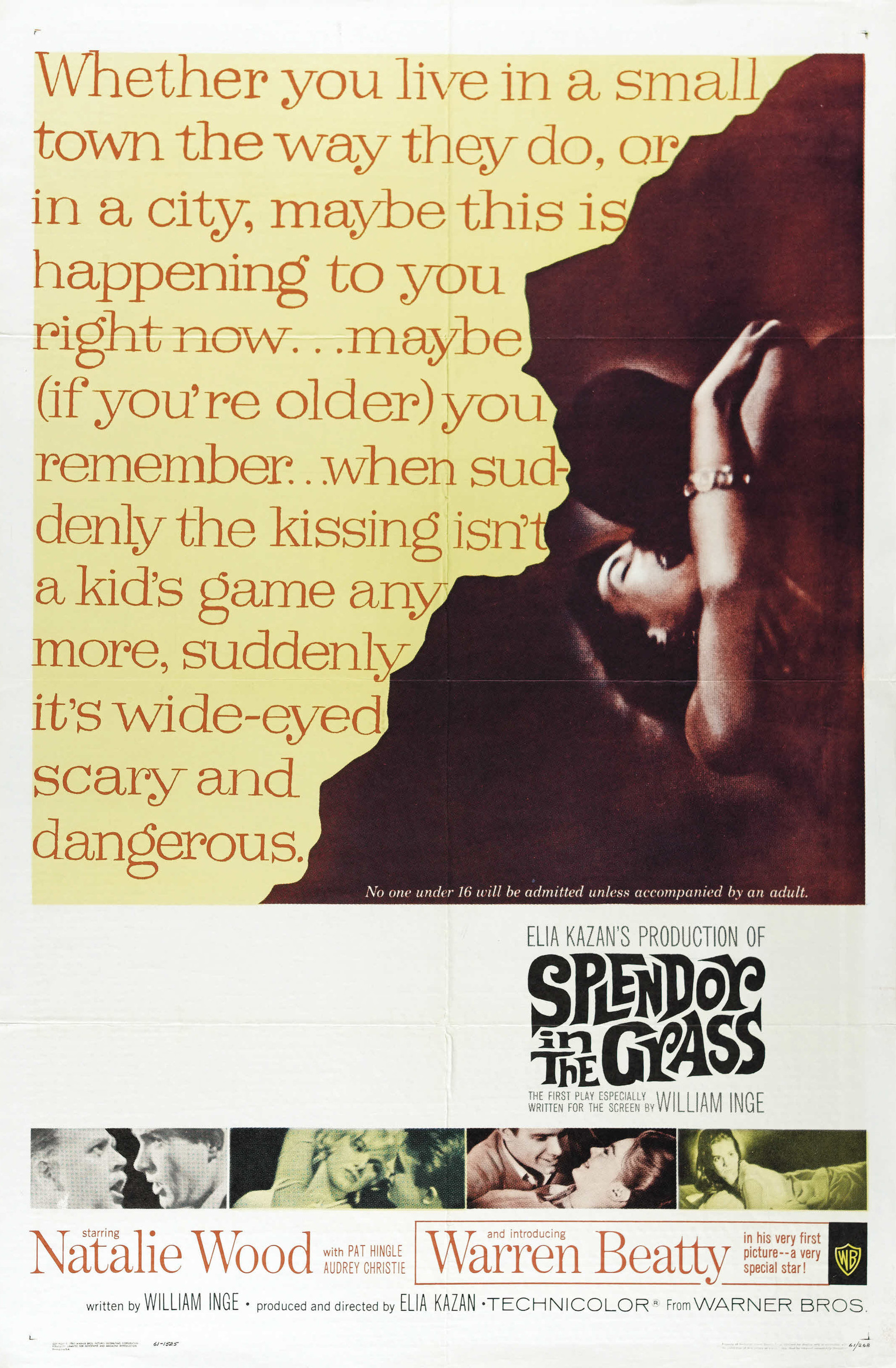A blog formerly known as Bookishness / By Charles Matthews
"Dazzled by so many and such marvelous inventions, the people of Macondo ... became indignant over the living images that the prosperous merchant Bruno Crespi projected in the theater with the lion-head ticket windows, for a character who had died and was buried in one film and for whose misfortune tears had been shed would reappear alive and transformed into an Arab in the next one. The audience, who had paid two cents apiece to share the difficulties of the actors, would not tolerate that outlandish fraud and they broke up the seats. The mayor, at the urging of Bruno Crespi, explained in a proclamation that the cinema was a machine of illusions that did not merit the emotional outbursts of the audience. With that discouraging explanation many ... decided not to return to the movies, considering that they already had too many troubles of their own to weep over the acted-out misfortunes of imaginary beings."--Gabriel García Márquez, One Hundred Years of Solitude
Search This Blog
Sunday, August 28, 2016
The Vanishing (George Sluizer, 1988)
Nightmarish without being in the least surreal, The Vanishing frightened me more than any horror movie ever has. It's a film about the dangers of curiosity and commitment -- double-edged virtues. A Dutch couple, Rex Hofman (Gene Bervoets) and Saskia Wagter (Johanna ter Steege) are vacationing in France, bickering a bit as couples do. When they run out of gas in the middle of a mountain tunnel, a precarious situation, Rex sets out to get some more, leaving a protesting Saskia behind. When he returns with a can of gas, she's not with the car, but this turns out to be only a temporary "vanishing" -- she's waiting at the side of the road when he emerges from the tunnel. They agree that they both overreacted to the situation -- in fact, the quarrel seems to have made their bond stronger. They reach a rest stop where Rex fills up the tank as well as the emergency canister and Saskia goes to buy drinks -- and never returns. Three years later, Rex is still obsessed with finding Saskia, to the dismay of his new girlfriend, Lieneke (Gwen Eckhaus). Meanwhile, we meet the man responsible for Saskia's disappearance, Raymond Lemorne (Bernard-Pierre Donnadieu), and watch as Raymond sets a trap into which Rex is lured by his own desire to know what happened to Saskia. (The French title, L'Homme qui voulait savoir -- The Man Who Wanted to Know -- is particularly on point where the crux of the movie is concerned.) The film works by setting up the conventions of the mystery thriller, then subverting them by revealing the identity of the kidnapper and the mechanisms by which he accomplishes his crime. Only the final horror of what Raymond has done with Saskia is withheld until the very end. The performances of Donnadieu and Bervoets go a long way to making the film credible, but it is chiefly the ingenuity of Sluizer's adaptation of the novel by Tim Krabbé that lifts it out of the ordinary. It is a cold-hearted movie that never spares the audience.
Saturday, August 27, 2016
Mission: Impossible -- Rogue Nation (Christopher McQuarrie, 2015)
One of the things that make me think Tom Cruise is smarter than his involvement with Scientology suggests is that lately he has been willing to surround himself in his films with actors who are more appealing than he is. In the case of Rogue Nation, they include Jeremy Renner, Simon Pegg, Ving Rhames, and Rebecca Ferguson. He has also shed the tendency to flash the famous toothy grin on any occasion, though his Ethan Hunt in this film doesn't have much to grin about. As the movie begins, the Impossible Missions Force is about to be disbanded and its members labeled "shoot to kill" by CIA director Alan Hunley (Alec Baldwin). It's a good premise for a thriller, if perhaps an over-familiar one: Make your good guys the target not only of the bad guys but also the other good guys. So off we go on a round of stunts that don't bear summarizing, but McQuarrie's script and direction keep the gee-whiz response pumping for an enjoyable couple of hours. Some critics thought the chief villain, a rogue MI6 agent named Solomon Lane (Sean Harris), wasn't villainous enough, but I have liked Harris's work since I first noticed him as Cesare Borgia's gay henchman Micheletto on the Showtime series The Borgias (2011-2013). He underplays in Rogue Nation, and the decision to dye his hair blond was probably a mistake, but I thought his subtlety was an effective contrast to Cruise's usual tendency to overplay. It has to be said that, at 55, Cruise is just beginning to be a bit implausible in his action sequences, especially the one at the film's beginning that has him leaping onto the wing of a cargo plane and clinging to it as it takes off, Perhaps it's true that he still does his own stunts, but in this golden age of camera tricks and CGI, that seems unnecessary: Audience are going to think it's faked anyway. There may in fact be a nod or two in the movie to Cruise's aging: After the extended underwater swim, Hunt has to be resuscitated, and there are a few moments, played mostly for comic relief by Pegg, when Hunt's disoriented state becomes a matter for concern. A sixth M:I film is evidently in the works. It will be interesting to see whether age plays more of a factor in it.
Friday, August 26, 2016
Orphans of the Storm (D.W. Griffith, 1921)
Who knew that one of the chief causes of the French Revolution's Reign of Terror was "Bolshevism"? Or that Danton, who helped send Louis XVI to the guillotine, was "the Abraham Lincoln of France," as one of the title cards for Orphans of the Storm proclaims? D.W. Griffith's gift for pseudo-historical hokum stood him in good stead in making this often preposterous classic, but it worked even better for Lillian and Dorothy Gish, whose performances as the titular orphans are superb. I think Dorothy may give the better performance as Louise, the foundling who is left blind by the "plague" that killed her adoptive parents, but that may be because I've seen Lillian's winsome tricks more often than Dorothy's. Lillian certainly flings herself into the role of Henriette, who became Louise's sister after her parents took in the girl as an infant, and her caretaker after she became blind. The girls go to Paris in search of a cure for Louise's blindness, and there Henriette is abducted by a lecherous aristocrat but saved by the virtuous Chevalier de Vaudrey (a surprisingly handsome young Joseph Schildkraut). Separated from Henriette, Louise falls into the clutches of the conniving Mother Frochard (Lucille La Verne), who puts the blind girl to work begging on the streets. (La Verne sports a monstrous wen and a mustache, reminding us that she was the voice of the wicked queen and the witch in the 1937 Disney Snow White and the Seven Dwarfs.) And then comes the Revolution, in which Henriette almost loses her head to the guillotine, thanks to the evil Robespierre (Sidney Herbert), before being rescued by, of all people, Danton (Monte Blue). (An end title informs us that the Reign of Terror ceased when Robespierre was beheaded, but conveniently ignores the similar fate of Danton.) In the end, Henriette and de Vaudrey are to be married, and Louise not only regains her sight but also learns that she was the daughter of the Countess de Linieres (Katherine Emmet) from a previous marriage to a commoner that was suppressed by the countess's family. This delicious stuff, which Griffith's screenplay took from a play by Adolphe d'Ennery and Eugène Cormon along with liberal borrowings from Dumas, Dickens, and Victor Hugo, is kept furiously a-boil by Griffith's superb gift for pacing and cutting. He never lets the action flag, even for the necessary exposition.
Thursday, August 25, 2016
4 Months, 3 Weeks and 2 Days (Cristian Mungiu, 2007)
 |
| Vlad Ivanov, Anamaria Marinca, and Laura Vasiliu in 4 Months, 3 Weeks and 2 Days |
Gabita: Laura Vasiliu
Mr. Bebe: Vlad Ivanov
Adi: Alexandru Potocean
Adi's Mother: Luminita Gheorghiu
Adi's Father: Adi Carauleanu
Director: Cristian Mungiu
Screenplay: Cristian Mungiu
Cinematography: Oleg Mutu
A harrowing, brilliant film, 4 Months, 3 Weeks and 2 Days is set in 1987 Romania, during the final years of the Ceausescu regime. Gabita, a student, wants an abortion, illegal in Romania, so she prevails on her roommate in a university dormitory, Otilia, to help her. But Gabita is so deeply sunk in denial that she's incapable of doing much more than ask for help: It's up to Otilia to do most of the planning and strategy after Gabita has telephoned the abortionist, a Mr. Bebe, to make the initial arrangements. Otilia even borrows money from her boyfriend, Adi, to help Gabita, and when the day arrives, she has been persuaded by Gabita to meet with Bebe and to go to the hotel room Gabita has supposedly reserved. Otilia has to bear the brunt of Bebe's scorn and bullying when he finds he is dealing with an intermediary. The hotel has no record of Gabita's reservation, and Otilia is forced to find a room in another hotel, every time encountering resistance and hostility, plus additional charges, from the hotels. Director Cristian Mungiu, who also wrote the screenplay, finds a tone halfway between Dickens and Kafka in his portrayal of bureaucratic indifference. Moreover, when Gabita finally arrives for the abortion, having characteristically forgotten the plastic sheet she was supposed to bring, we find that her capacity for denial extends to how far advanced her pregnancy really is: She had told Otilia that it has been three months since her period, but Bebe forces her to admit that it has been almost five -- hence the film's title. He demands more money, and when the women are unable to come up with it, he agrees to proceed if they will have sex with him. Mungiu uses long takes, carefully framed without camera movement or cuts, to set up this sordid tale, and the performances by Marinca, Vasilu, and Ivanov are equal to the demands of what amounts almost to filmed theater. After Bebe has performed the procedure and left, while Gabita is waiting to expel the fetus, Otilia leaves for a while, having agreed to attend a birthday dinner for Adi's mother. Once again, Mungiu uses a long take at the dinner table, where the guests, friends of Adi's parents, chatter on inconsequentially as Otilia sits there virtually silent, though obviously anxious about Gabita's plight, as well as feeling guilty about having sex with Bebe. It's to Mungiu's great credit -- not to mention Marinca's -- that he does nothing to communicate this subtext to the scene, other than allow the banality of the dinner table talk to make us focus on Marinca's face and to project our own uneasiness about the situation onto her. Mungiu also contrasts his long, still takes with long tracking shots filmed with a handheld camera as, later, Otilia hurries through the nighttime streets looking for a place to dispose of the fetus. It's undeniably an unpleasant story, but it's also a haunting one, given great resonance by the skillful characterization of the script and its performers and the superb cinematic technique of its director. In the recent BBC poll of film critics to name the best film of the 21st century, 4 Months, 3 Weeks and 2 Days came in at No. 15. I might have placed it higher.
Wednesday, August 24, 2016
Black Mass (Scott Cooper, 2015)
Having long ago effaced the stigma of being a teen heartthrob on the TV series 21 Jump Street (1987-90), and having earned three Oscar nominations, Johnny Depp no longer has to prove himself as an actor. But his recent career has been marked by disastrous flops -- Alice Through the Looking Glass (James Bobin, 2016), Mortdecai (David Koepp, 2015), The Lone Ranger (Gore Verbinski, 2013) -- and too much reliance on the Pirates of the Caribbean series. Black Mass is a partial redemption for those failings, mostly because Depp becomes the best reason for seeing it. Apart from Depp's cruel and icy portrayal of Boston mobster James "Whitey" Bulger, there's not enough heft and momentum to Scott Cooper's film. It takes a fascinating story of the interrelationships between Bulger's mob, the FBI, and the government of the Commonwealth of Massachusetts and reduces it to a routine and often derivative gangster movie. Cooper and screenwriters Mark Mallouk and Jez Butterworth borrow shamelessly from GoodFellas (Martin Scorsese, 1990) in a scene in which Bulger playfully terrorizes a colleague in the same way Joe Pesci's character -- "What do you mean, I'm funny?" -- frightens Ray Liotta's Henry Hill. The film often seems overloaded with good actors -- Joel Edgerton, Benedict Cumberbatch, Kevin Bacon, Peter Sarsgaard, Jesse Plemons, Adam Scott, Julianne Nicholson -- in parts that don't give them enough to do. And while it was filmed in Boston, it misses the opportunity to capture the Boston neighborhood milieu in which Whitey, his politician brother Billy (Cumberbatch), and FBI agent John Connolly (Edgerton) grew up, something that was done to much better effect in films like Mystic River (Clint Eastwood, 2003), Gone Baby Gone (Ben Affleck, 2007), and even Good Will Hunting (Gus Van Sant, 1997). Still, the cold menace projected by Depp's Bulger is haunting, enhanced by the decision to provide the actor with ice-blue contact lenses that pierce through the shadows and give him an air of otherworldly surveillance.
Tuesday, August 23, 2016
Nightcrawler (Dan Gilroy, 2014)
That an actor as good as Jake Gyllenhaal, still in his 30s, should have to resort to transformative tricks to get a noticeable role is regrettable. Ever since the Brits learned to do American accents that don't sound like they're talking through their noses while chewing gum, young American actors have had it hard. Why should producers take a chance on a Yank when they can hire a Hiddleston or a Cumberbatch or one of the Dominics (Cooper or West)? So you're doing a TV series about a Russian spy pretending to be an American? Naturally you hire Matthew Rhys, a Welshman. Want a fresh face? Check out RADA or that young guy who just got raves playing Hamlet in Bristol. What's an American actor got to do to get a break? If you're Matthew McConaughey trying to avoid getting cast in another rom-com, you lose 47 pounds and win an Oscar. Or if you're Gyllenhaal, you lose all the muscle you built for the turkey Prince of Persia: The Sands of Time (Mike Newell, 2010), let your hair go long and greasy, turn yourself into one of the more fascinatingly repellent characters in recent films and get the best reviews you've had since Brokeback Mountain (Ang Lee, 2005). Nightcrawler is a solid drama with a satiric edge, in which Gyllenhaal plays Louis Bloom, a sociopath who roams the streets of Los Angeles at night, listening to a police scanner for reports of shootings, fires, car crashes -- anything that comes under the TV news rubric, "If it bleeds, it leads." He films whatever gore he can worm his way past police lines to witness, then sells it to a local TV news outlet. There are semi-legitimate, better-equipped outfits doing this sort of thing, but they have some scruples. Bloom has none; his amorality is hair-raising. This was the first film as a director for Dan Gilroy, who also wrote the screenplay, and it has a terrific cast supporting Gyllenhaal. Rene Russo plays a TV news producer whose ethical standards are only a shade higher than Bloom's. She makes Faye Dunaway's Diana Christensen in Network (Sidney Lumet, 1976) look almost namby-pamby. Riz Ahmed plays Rick, a homeless kid whom Bloom hires as an assistant and abuses and profoundly exploits. After his turn in HBO's miniseries The Night Of (2016), Ahmed is in danger of getting typed as a wide-eyed patsy. Bill Paxton, one of those actors whose presence always helps make a film better, plays an older and more experienced TV news freelancer who shows Bloom the ropes and winds up getting sabotaged for his efforts.
Links:
Bill Paxton,
Dan Gilroy,
Jake Gyllenhaal,
Nightcrawler,
Rene Russo,
Riz Ahmed
Monday, August 22, 2016
Splendor in the Grass (Elia Kazan, 1961)
This overheated melodrama, released the year after the introduction of the Pill, could almost be a valedictory to the 1950s. Deanie Loomis (Natalie Wood) and Bud Stamper (Warren Beatty) are two hormone-drenched Kansas teenagers in 1928 -- though the attitudes toward sex were still prevalent thirty years later -- unable to find an outlet for the passions they are told they should repress. He is under the sway of a bullying, motormouthed father (Pat Hingle in an over-the-top performance that's alternately frightening and ludicrous), while she has a frigid, convention-ridden mother (Audrey Christie). She goes mad and is sent to a mental hospital. He goes to Yale and flunks out. Such are the consequences of not having sex. The truth is, Splendor in the Grass is not quite as silly as this summary makes it sound. Kazan's direction is, as so often, actor-centered rather than cinematic: The performances of the four actors mentioned give it a lot of energy that at least momentarily overrides any reservations I have about the psychological plausibility of William Inge's screenplay, which won an Oscar. There's also Barbara Loden as Bud's wild flapper sister, and Zohra Lampert as the earthy Italian woman Bud winds up marrying. In the end, the movie becomes almost a documentary of a moment in American filmmaking, when censorship was beginning to lose ground, and things previously unmentionable, like abortion, became at least marginally acceptable. The film itself could almost serve as an indictment of the attitudes that produced the Production Code, which hamstrung American movies from 1934 to 1968. What distinction the movie has other than as a showcase for performances comes from Boris Kaufman's cinematography, Richard Sylbert's production design, and Gene Milford's editing.
Sunday, August 21, 2016
Steamboat Bill Jr. (Charles Reisner, 1928)
Saturday, August 20, 2016
City of God (Fernando Meirelles and Kátia Lund, 2002)
City of God is an exceptionally involving docudrama that employs non-professional actors to stunning effect. The only experienced professional in the cast was Matheus Nachtergaele, who played the drug dealer known as "Carrot." The rest were mostly recruited from the streets and slums of Rio, and put through several months of training, largely under the supervision of Lund, who also worked with the cast during filming and is billed as "co-director." Lund had become familiar with Rio's slum-dwellers through her work on music videos and documentary films. The shape of the film, including its flashback structure and use of quick cutting and hand-held camera, is largely that of Meirelles, whose most recent work includes coverage of the opening ceremony of the 2016 Olympics in Rio. And that reliance on flashy camerawork and narrative tricks is, I think, the greatest flaw of City of God. It detracts from some of our involvement in the lives of its characters, turning away from documentary-like reality into sheer "movie-making." Nevertheless, the film successfully immerses us in the violent lives of the people of the favelas. It was a significant critical and even commercial hit, earning four Oscar nominations, a rare feat for a foreign-language film. It wasn't submitted by Brazil for the foreign-language Oscar, but instead was nominated for best director, best adapted screenplay (Bráulio Mantovani from the novel by Paulo Lins), cinematography (César Charlone), and film editing (Daniel Rezende). Some controversy arose when only Meirelles was cited in the directing nomination, but the Academy has strict eligibility rules, and Lund's credit of "co-director" was judged to be a disqualifier. Given my reservations about Meirelles's use of the camera, I think maybe Lund deserved the nomination more than he did.
Friday, August 19, 2016
Veronika Voss (Rainer Werner Fassbinder, 1982)
Subscribe to:
Comments (Atom)



_poster.jpg)




